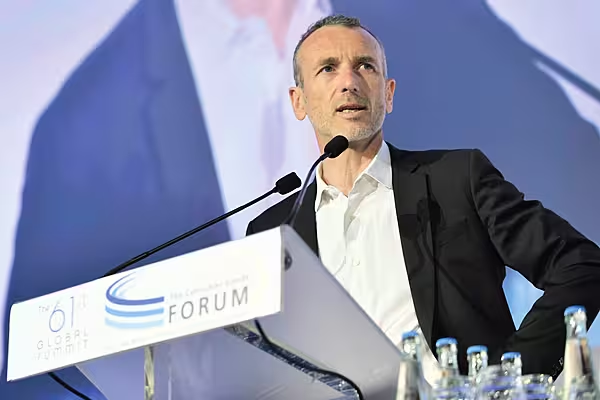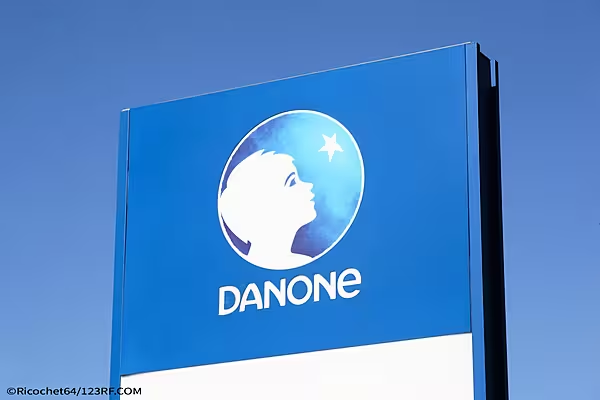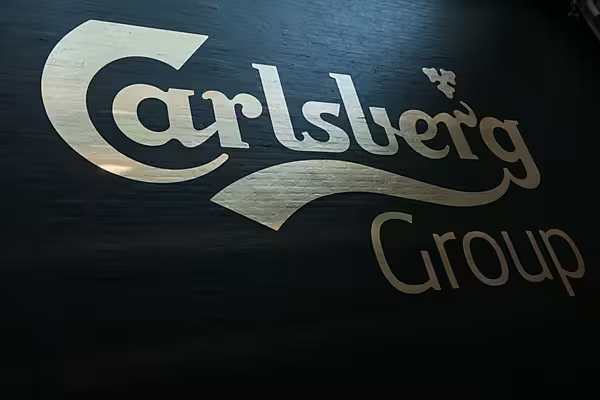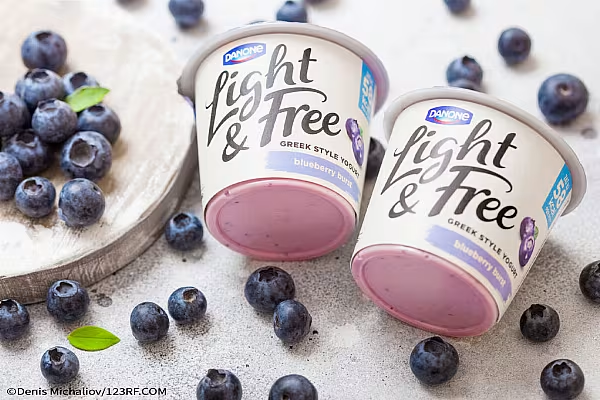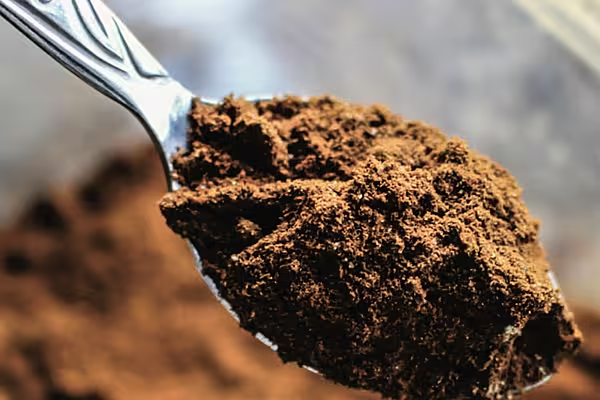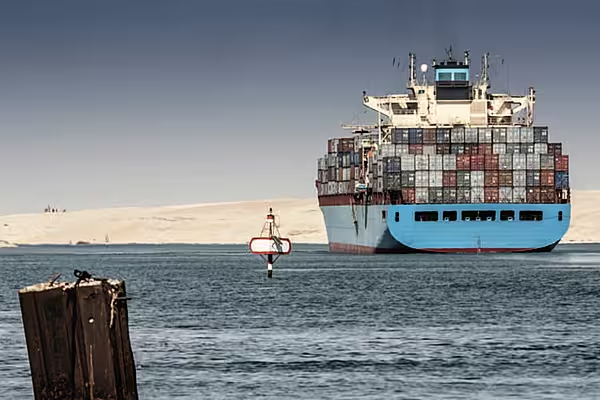Emmanuel Faber, the chief executive of food giant Danone, believes that brands need to adapt to meet the needs of a health-focused, socially-conscious consumer, or risk irrelevance. Stephen Wynne-Jones met him. This article first appeared in ESM Issue 4, 2019.
Danone chief executive Emmanuel Faber is nothing if not adventurous: just hours after ESM met him at the Consumer Goods Forum Global Summit in Vancouver, he was off to scale a mountain (he’s an avid rock climber).
In his native France, you might say he embraces ‘dépaysement’ – the willingness to throw yourself into unknown situations, apprehensive yet brimming with excitement. And as the leader of one of the world’s biggest consumer goods firms, he wants to take this audacious spirit into the food arena.
“Today, people the world over are reinventing how to eat, drink and socialise over food experiences,” he explains.
“This ‘food generation’, who grew up knowing that our resources are finite, is questioning a lot of things and challenging mainstream food systems.
“When they take a product, they turn it over to read the label and ask themselves ‘How was it produced? Who are the people behind it? Can I trust them? Is it good for my health and for that of the planet?.”
One Planet, One Health
This mindset is at the core of the ‘One Planet, One Health’ positioning that Danone adopted in 2017 – the notion that the health of consumers and the health of the planet are interconnected, and that all stakeholders, particularly brands, should form a movement aimed at nurturing the adoption of healthier, more sustainable consumption habits. In this, the firm’s 100th year, it is more relevant than ever.
“People became aware of the fact that each time they eat and drink, they can vote for the world they want to live in,” says Faber. “They are demanding transparency and accountability and want a fresh approach.”
As he explains, the consumer goods industry finds itself today at a crossroads, where the “old truths of mass manufacturing are beginning to break down. The practice of seeking the most stable and homogenised food system has only delivered an illusion of safety. Today, we find that we have come to depend on just a dozen or so plants for most of the food we eat.
“In fact, we are endangering the biodiversity of nature, on which we will always depend for the adaptability and resilience of plant life in the face of new diseases, climate change and other threats. So the standardisation of food and agriculture has, ironically, become the biggest risk to our food safety and security in the future.”
Danone, along with other large firms, has a role to play in addressing this, and needs to act with conviction, he adds. “If we are not bold, we face the risk of being meaningless and die. We need to reinvent the food system, co-create durable solutions and change the way food is grown, produced, marketed, distributed, sold and consumed.”
Seeking Relevance
It’s a valiant step for the CEO of a firm that generates sales of around €25 billion a year to take, with the One Planet, One Health mantra being imbued into all aspects of the group’s operations. Last year, for example, 89% of volume sold was in healthy categories, female representation within the group’s management and executive teams rose to 50%, and greenhouse gas emissions dropped a fifth (compared to 2015 levels).
But as Faber admits, the journey is far from over – Danone and other brands will need to continually push boundaries, re-injecting purpose into their operations or risk becoming irrelevant to a demanding consumer base.
“Danone has a common sense of purpose in its DNA, a legacy dual project which aims at combining business success and social progress,” he says. “That means seeking a path of inclusive growth and shared economic benefit – without forgetting that no one will benefit if we do not take care of the planet’s health, as well as our own.
“So the question for any brand is at root a very simple one. What can each brand achieve to make the world a better place?”
As he explains, Danone seeks to position its brands as ‘manifesto brands’, acting as activists towards positive social change. One such brand is Bonafort, in Mexico, which has been promoting gender equality in the Latin American country for a quarter century, and last year launched a major social media campaign, ‘Avancemos por la igualdad’ (‘Advance for equality’).
Examples like these highlight “how we can engage people to join us in advancing social, environmental and health-related causes,” says Faber. “This is how we can deliver sustainable and profitable growth, as people are more and more aligning their consumption choices with their beliefs.”
Sales Performance
Danone posted a 2.9% increase in like-for-like sales last year, to €24.6 billion, with volume sales declining by 0.7% and value sales up by 3.6%, “thanks to a transformed approach and significant step up of innovation capabilities, as well as an acceleration of getting products to market,” according to Faber.
All the business’ segments were in growth: Essential Dairy & Plant Based International saw a marginal like-for-like growth of 0.1%, Essential Dairy & Plant Based North America rose by 1.5%, Specialised Nutrition was up 5.9%, while Waters was up 5.3%.
It was an eventful year – on the one hand, the business faced a lengthy consumer boycott in Morocco last year, on the other, it completed the integration of the WhiteWave business, adding expertise in the growing plant-based foods arena.
“When we made the decision in 2017 to acquire WhiteWave, we understood that we were embarking on a new kind of future,” says Faber. “The market trends are very clear. Younger people everywhere are changing and adopting new eating habits – vegetarian, vegan, organic, or more broadly flexitarian with plant- and dairy-based being two distinct but complementary types of food with many people opting for both.
“This is the food revolution becoming reality. Our focus at Danone is to bring the right innovation and engagement, to capture and serve this market as it grows.”
Packaging Commitment
Last October, Danone announced an ambitious packaging commitment: to make 100% of its packaging recyclable, reusable or compostable by 2025, and to ‘accelerate the transition towards a circular economy of packaging’, as the company said in a statement.
It’s not going to be easy: according to the Ellen McArthur Foundation, Danone produced around 750,000 tonnes of plastic packaging last year.
“We are working on the challenge from many angles,” Faber says. “We are fully committed to designing our packaging in line with circular economy principles, working with partners like the Ellen MacArthur Foundation to do so.”
As part of its packaging commitments, Danone has pledged to invest in private initiatives that promote a circular infrastructure (initiating or supporting collection or recycling initiatives in each of its top 20 markets by 2025), has rolled out 100% recyclable bottles for its evian, Volvic, AQUA, Aqua d’Or and Lanjaron water brands, and recently signed a deal with reusable packaging provider Loop Industries.
“Some 87% of our packaging is now recyclable, reusable or compostable and we are working to increase our re-usable packaging – which currently represents over a third of our total product volumes and more than 50% of our water volumes – by launching new models like the evian refillable in-home water appliance, (re)new,” says Faber.
“That being said, we believe that no one company, and probably no one government, can solve this challenge on their own. This is why we are helping to form broader industry partnerships to develop new solutions, like the NaturALL Bottle Alliance [a joint project with Nestlé, PepsiCo and Origin Materials to bring the first 75% bio-based bottle to commercial scale by 2021].
“We also aim to engage with policymakers to co-build effective, efficient and inclusive systems for packaging collection, and we want to help people in their efforts to recycle through education programmes and engaging campaigns.”
Building A Legacy
Faber has been with Danone for more than two decades, with this October marking five years since he replaced Franck Riboud as chief executive, a man credited with turning around a once highly-fragmented business.
“Franck Riboud brought a visionary leadership to Danone during his chairmanship and throughout his career with the company,” Faber says of his predecessor. “The last five years have been exceptionally busy ones, and I think our greatest achievement at Danone has been to look forward and to formalise our goals and our ambitions for long-term, sustainable value-creation.”
Launching the company’s 2030 goals last year, Danone unveiled an innovative engagement model, ‘One Person, One Voice, One Share’, with all 100,000 employees granted a share in the company, to foster a co-ownership mindset across the whole company.
“The voice of all our team members will now routinely inform the definition of our priorities and our strategy, to co-build Danone’s roadmap at local and global level in interaction with our executive committee and board of directors,” says Faber. “So it is not about what I can achieve, but what we can all achieve together.”
Exactly the sort of support you need when scaling a mountain... figuratively speaking, in this case.
© 2019 European Supermarket Magazine – your source for the latest retail news. Article by Stephen Wynne-Jones. Click subscribe to sign up to ESM: The European Supermarket Magazine
